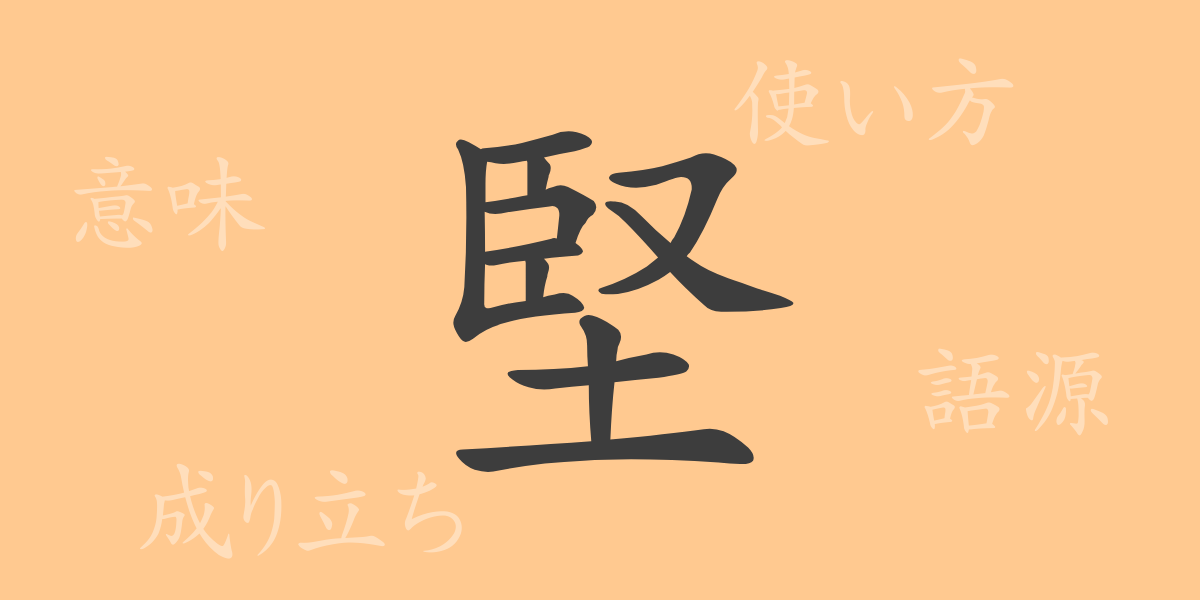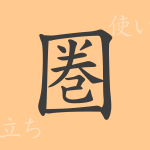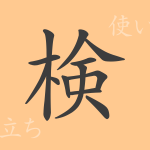The depth of Japanese written culture is epitomized by kanji, known for their complexity and beauty. One such commonly used kanji is “堅” (けん, ken). This article delves into the charm of “堅,” exploring its origins, meanings, usage, and idioms. As we uncover the richness of Japanese language, let’s dive into the world of “堅.”
Origins of 堅
The kanji “堅” (けん, ken) has its roots in ancient China. Developed from pictographs, this character originally depicted “a solid castle wall.” It is composed of an upper part representing the wall and a lower part functioning as a phonetic component. Understanding this historical background is key to grasping the meanings of “solid” and “firm” that “堅” conveys.
Meanings and Usage of 堅
The kanji “堅” (けん, ken) means “solid,” “firm,” and “reliable.” In Japanese, it is used not only to describe physical hardness but also to express mental strength and steadfast beliefs. For example, “堅実” (けんじつ, kenjitsu) means being steady and reliable, and “堅忍” (けんにん, kennin) signifies endurance in the face of adversity. These meanings highlight the importance of “堅” in both everyday conversation and business contexts.
Readings, Stroke Count, and Radical of 堅
The kanji “堅” (けん, ken) has various readings and structural components.
- Readings: On’yomi – けん (ken); Kun’yomi – かたい (katai)
- Stroke count: 11 strokes
- Radical: 土 (つち, tsuchi) radical
Idioms, Proverbs, and Phrases Using 堅
There are numerous idioms, proverbs, and phrases in Japanese that include “堅” (けん, ken). Here are some examples:
- 堅苦しい (かたくるしい, katakurushii): Referring to something overly formal or rigid.
- 堅持 (けんじ, kenji): Firmly maintaining a position or opinion.
- 堅い縄も三年経てば腐る (かたいなわもさんねんたてばくさる, katai nawa mo sannen tateba kusaru): A proverb meaning that even the strongest things deteriorate over time.
Conclusion About 堅
The kanji “堅” (けん, ken) has been used in various contexts from its origins to the present day. Symbolizing solidity and strength, this character plays a crucial role in enriching Japanese expressions. By deepening our understanding of “堅,” we can enhance our vocabulary and expression in both daily and specialized language.

























